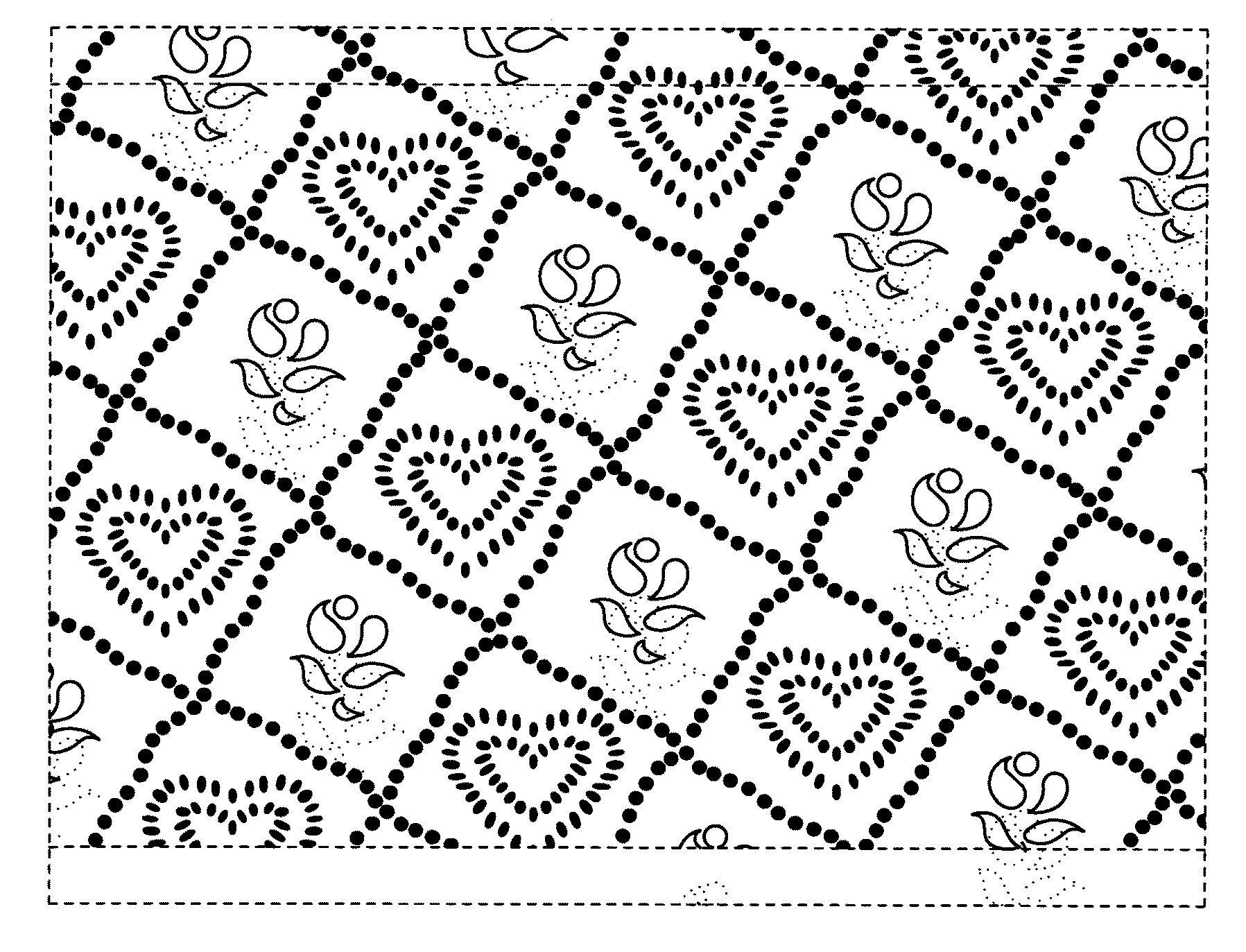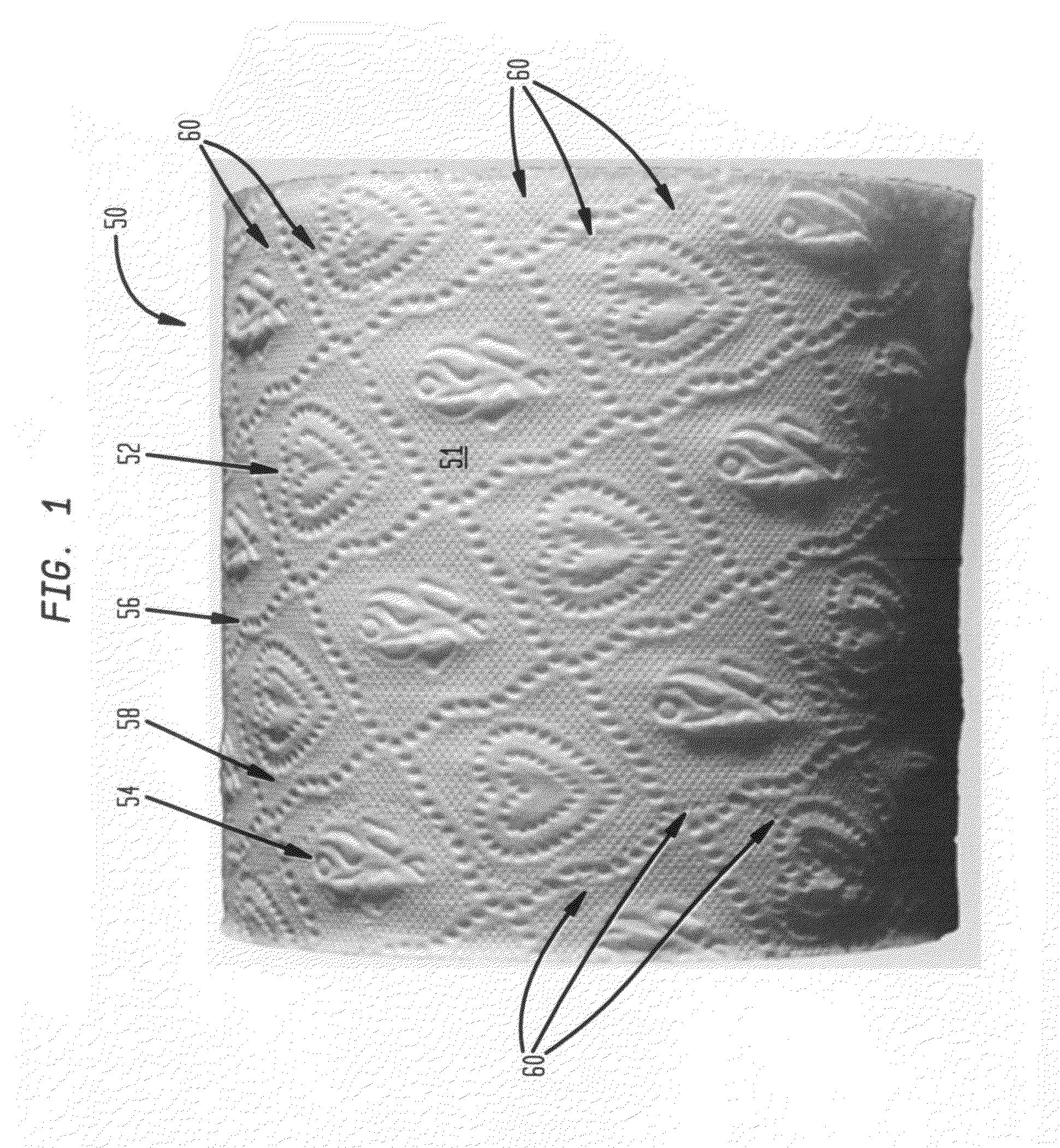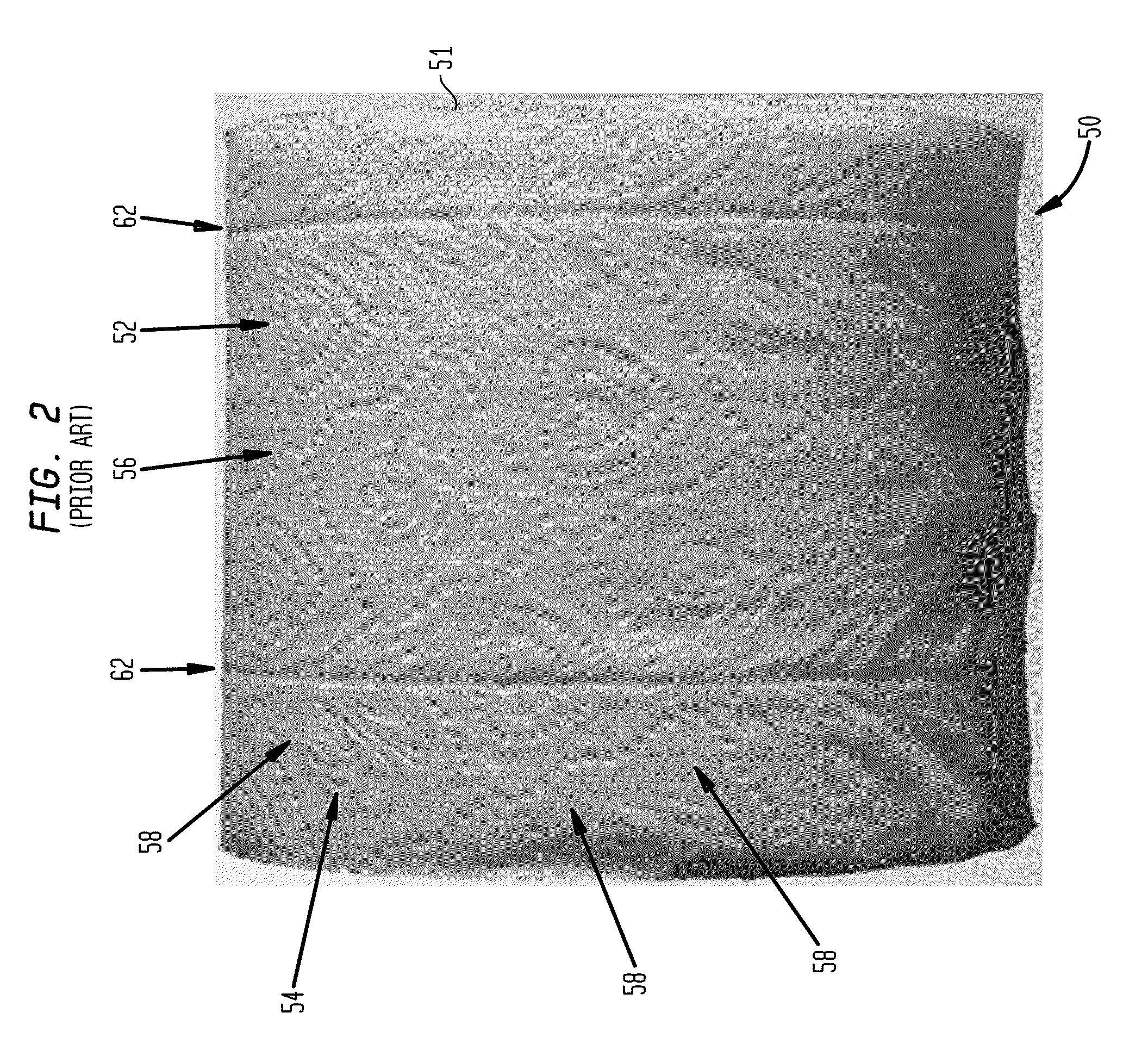Ultra premium bath tissue
a bath tissue and ultra-premium technology, applied in the direction of synthetic resin layered products, papermaking, transportation and packaging, etc., can solve the problems of not finding widespread acceptance in the north american market, affecting the aesthetic appearance and haptics of the product, and suggesting the desirability of including a plurality of macro emboss elements
- Summary
- Abstract
- Description
- Claims
- Application Information
AI Technical Summary
Benefits of technology
Problems solved by technology
Method used
Image
Examples
Embodiment Construction
[0082]In FIG. 1, on tissue roll 50 according to the present invention, embossed exterior tissue ply 51, having a plurality of pattern embosses 52, 54, 56 and 58 embossed thereinto, overlies unembossed interior tissue ply 53 (FIGS. 23-C, 23-E, 24-C &24-E) to which it is joined by glassined spot embosses 60 arranged along a sinuous path formed by the use of knurled ply-bonding wheels 70 such as those illustrated in FIGS. 3-6. In FIG. 1, as only the most visible glassined spot embosses 60 on tissue roll 50 are marked with arrows, it can be observed that those unmarked glassined spot embosses 60 on tissue roll 50 are obscured in contrast to the marked unsymmetrical “railroad track” appearance of lines of spot glassining 62 observable in embossed exterior tissue ply 51 of prior art tissue roll 50 formed using conventional spot glassining techniques in FIG. 2 using a conventional prior art knurled ply-bonding wheel 270 as illustrated in FIG. 7. Accordingly, it can be seen that use of the ...
PUM
| Property | Measurement | Unit |
|---|---|---|
| aspect ratio | aaaaa | aaaaa |
| aspect ratio | aaaaa | aaaaa |
| angle | aaaaa | aaaaa |
Abstract
Description
Claims
Application Information
 Login to View More
Login to View More - R&D
- Intellectual Property
- Life Sciences
- Materials
- Tech Scout
- Unparalleled Data Quality
- Higher Quality Content
- 60% Fewer Hallucinations
Browse by: Latest US Patents, China's latest patents, Technical Efficacy Thesaurus, Application Domain, Technology Topic, Popular Technical Reports.
© 2025 PatSnap. All rights reserved.Legal|Privacy policy|Modern Slavery Act Transparency Statement|Sitemap|About US| Contact US: help@patsnap.com



